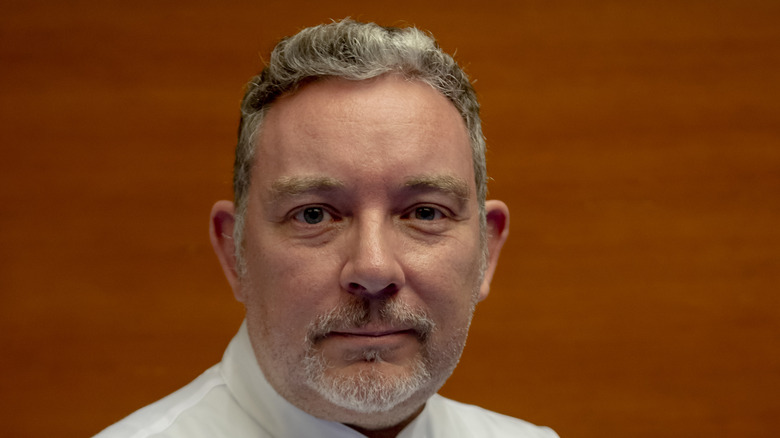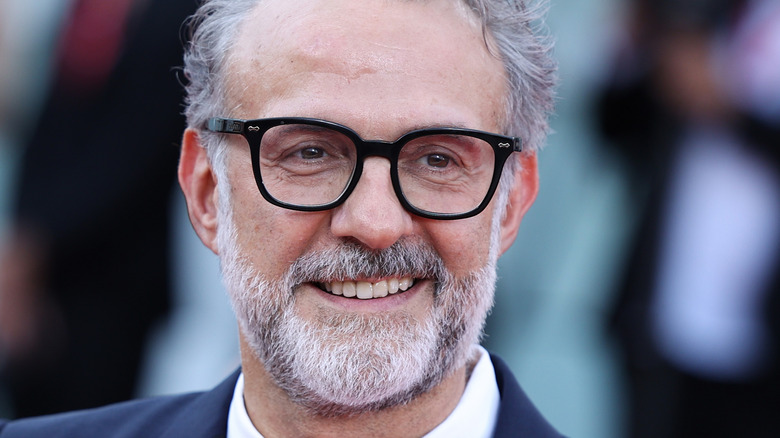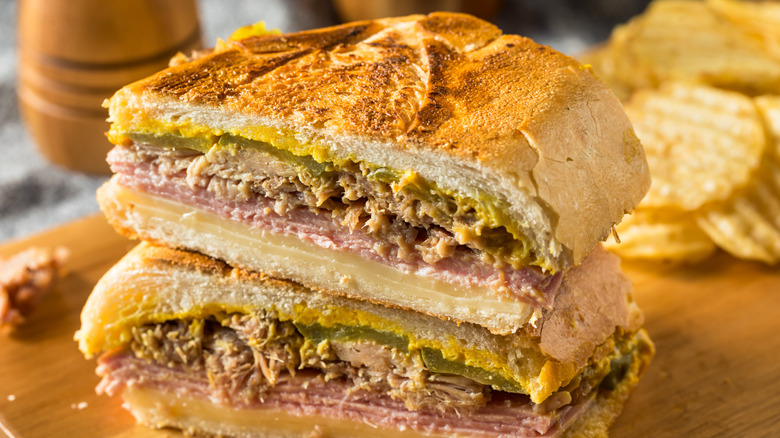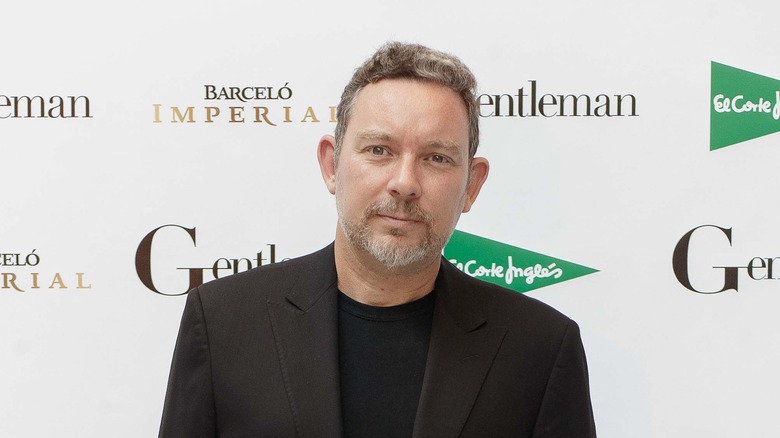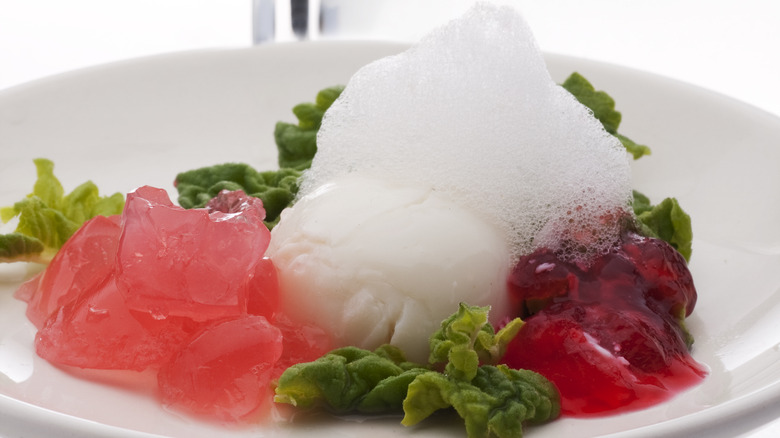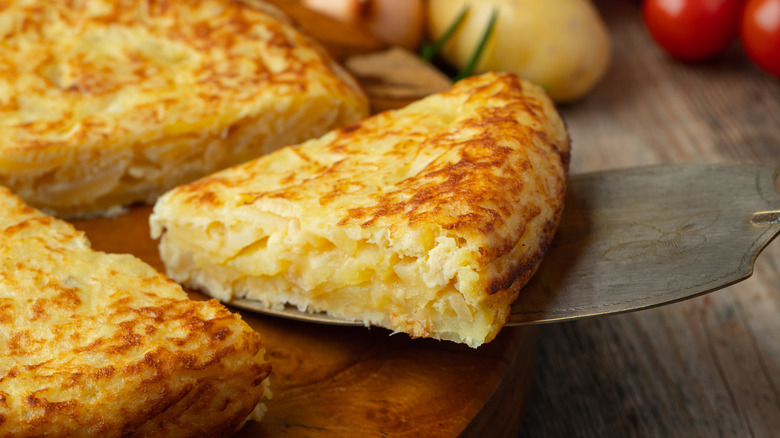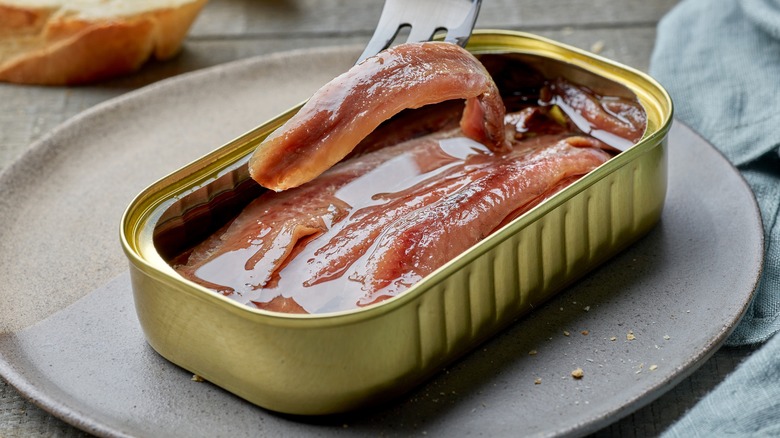Albert Adrià Talks To Us About South Beach, Massimo Bottura, And Spanish Cuisine - Exclusive Interview
Albert Adrià is one of the most celebrated chefs in the world. He and his brother Ferran made their names as chefs at the legendary elBulli, the groundbreaking Spanish restaurant that was named the World's Best by The World's 50 Best Restaurants five times. He worked his way up from an apprenticeship and ultimately became elBulli's pastry chef. In that capacity, he applied the restaurant's pioneering use of modernist, avant-garde techniques to the dessert menu and founded elBullitaller, an experimental test kitchen.
Having conquered the world of pastry, he set his sights on other projects, opening a series of successful restaurants, including Barcelona's Inopia Classic Bar (credited as Spain's first gastrobar) and Tickets, a Michelin-starred tapas restaurant. His latest project, Enigma, continues the experimental, conceptual legacy of elBulli.
Tasting Table caught up with Adrià for an exclusive interview in advance of the tribute dinner for Massimo Bottura happening later this month at the South Beach Wine & Food Festival. Adria talked about what he plans on cooking for the dinner and reflected on his relationship with Bottura, who trained at elBulli as a young chef. He also shared some thoughts on modernist cuisine, tips on traditional Spanish food, and his favorite foods to eat during his visits to the U.S.
Albert and Massimo
Hi! Do you know what you're cooking for Massimo Bottura's tribute dinner at South Beach?
We're actually going to do a vegan dish. It's a vegan burrata. We're going to put also a few seasonal products into this burrata. It's going to be a black truffle and green peas.
Wow. That sounds great. How do you make a vegan burrata?
It's a secret [laughs]. With love. With love. With soya beans and a lot of love.
Do you remember the first time you met Massimo? And what was your first impression of him?
Yeah, he worked with me in elBulli in 2002, I believe. I don't remember. I'm not sure, but 2002, maybe. 2001, 2002.
Do you have any particular memory of him when he worked at elBulli?
In that moment at elBulli, there were lots of foreigners. And it was a good thing that he was Italian because it's always easier for a Spaniard to speak with an Italian than someone else. A lot of people inside the kitchen talk in English, because they are from around the world, no? We have people from Korea, from Belgium, from Italy, from wherever you like.
Food is a universal language, right?
Totally, totally.
Have you learned anything from Massimo over the years? Has he taught you anything about Italian cuisine?
The funniest thing is that I've never had dinner at his restaurant. That is something really, I really need to solve as soon as possible. But we've cooked together many, many times.
I saw at one point you cooked together at one of his refettorios, the soup kitchens. What made you want to do that?
It was an amazing experience and one of the most beautiful things that I've ever seen. And we also cooked with my brother Ferran. It's a great memory from that event. We always meet each other like 3, 4, 5 times a year.
That's amazing.
And for me, to be able to participate in this homage [to Massimo], with also such great names, is a complete honor, and I take it really seriously.
Adrià's American favorites
I'm sure. Do you have any favorite American chefs? Or restaurants, or dishes you're looking to try when you're visiting South Beach?
I was actually last summer in South Beach. I was staying at Hotel Faena. And I've been many, many times to the United States, but it was my first time in Miami, last summer. And it's a city that I really like, and it's also one of the reasons I also said yes, was the opportunity to come back to Miami.
But the United States is very different from Europe. And you need to visit one city a lot of times to extend, because each is completely different, Miami, to New York, or Boston, or Washington, no? Europe is more similar, Paris to London, Barcelona, Roma, blah, blah. And now, of course, Miami's a city that's trendy. I'm sure I won't be able to see much, because we have to do, in just three days, food for so many people.
Yeah, I'm sure you'll be busy.
But anyway, it's a real honor to be able to cook with Luca Garavoglia, Jordi Roca, and everyone else.
Is there any food you like to eat in America that you can't find in Europe?
One of the things I enjoy is the sandwiches. All the world of sandwiches that you have here.
In Miami, the Cubano sandwich. Pastrami in New York. Sandwiches. I made good friends in Miami last time because he invited me to eat Miami Slice Pizza. It's a Venezuelan guy, very successful. Closed at nine o'clock, and is full, completely full, the queues every day.
I've been to, also, La Mar in Mandarin Oriental from Gastón Acurio. I really love the work of Diego Oka. And also, I've been to a Cote, a Korean restaurant with one Michelin star. They have another in New York. It is that, for me, it's good. A burger, chicken wings, tacos, burritos. Japanese too, the good Japanese, the good Korean, Chinese, Italian. Very good Italian restaurants.
Plans for the future
Would you ever think about opening a restaurant in the United States? I know you are involved with the Mercado Little Spain in New York, but would you ever open your own business here?
Each year it passes, there's less and less chance, because every year I'm older. But why not? Why not? Miami is beautiful. It's like Barcelona.
Do you have any plans on opening any new businesses anywhere? Or are you focused on Enigma for right now?
Good question. We're both things. We're very centered on working at Enigma, and also, for another side, we're looking at potential projects outside of Spain and in Spain as well.
Anything you can share specifically?
One thing, yeah. The closest thing, in a few months we'll open an ice cream shop in Barcelona.
Amazing. What's your favorite ice cream?
Yeah, it's a combination of chocolate with lemon. Chocolate ice cream, lemon sorbet. Yin yang.
Why you shouldn't do molecular gastronomy at home
I know Enigma is your main thing now. How is it different from your previous restaurants? And what is your philosophy for making the dishes there?
The biggest difference is that now, with only one restaurant and being able to focus on only one restaurant, I cook here every day. And I'm focused. I'm focused on Enigma. I'm the owner and the chef.
You get to be more hands-on there than when you had multiple restaurants.
Exactly.
The restaurant continues in the modernist cuisine tradition that I know you've been working in for a while. Are there any modernist techniques that you think a home cook could use in their own kitchens?
No.
You don't think it's useful for home cooking?
No. I wouldn't even try to do it at home, these things.
Is it because it needs special equipment that's not worth having at home?
That's true, what you said on one side, yes. And the second is that it's a very complex cuisine that you really need to know how to do, and you have to have done it before. It's not enough to just see a video on Instagram and say, "Okay, I can do this now." There's lots of small, little details and little tricks that will make it good or terrible.
The Spanish dish to start with
I know you are passionate about traditional Spanish cuisine as well.
You're well-informed a lot.
Say for someone who's not familiar with Spanish cuisine, is there a dish that they should start with to cook, to learn about it?
It would be probably tortilla de patatas. It's like the omelet with potatoes.
Are there any techniques that you should know about to make sure the tortilla de patatas comes out right?
The thing is, it's something that's more than a simple trick — you need to do it every day. And if you ask 100 people to do them, you'll get 100 different tortilla de patatas. Practice, practice, practice in finding your own style. Good eggs. Good eggs, good potato, good omelet. The key question: onion, yes or no, is a challenge. It's a debate in Spain.
Do you like it with onions? Or ...
Both.
The best types of Spanish anchovies
I've been looking at dishes from Enigma, and I saw that you like to use anchovies. And I know that tinned seafood and preserved fish are very popular in Spain, generally. How do you select high-quality tinned fish? Or is there a brand that you like?
The problem about the tinned seafood nowadays is that every day there's less and less. And it's becoming more expensive than fresh seafood.
Anchovy to me, is one of my top 10 products. My favorite product, and it's important that we have our contacts in the market who are the best quality and don't use a lot because it's a limited quantity you have every year. The process to clean and the process to preserve is a secret to each.
What is your favorite way to use preserved anchovy?
We work with different brands. Normally with two different brands, depending on the market. Typically, from the north to Spain, because the size of the sea in the north, the Cantabrian, is more big than the Mediterranean. In the Mediterranean, the fish are more small.
That makes sense.
The big size, this quality doesn't arrive to United States. I'm sorry.
I'll have to go to Spain to try it.
The South Beach Wine & Food Festival runs from February 22-25. Tickets for the tribute dinner for Massimo Bottura and Luca Garavoglia can be purchased here.
